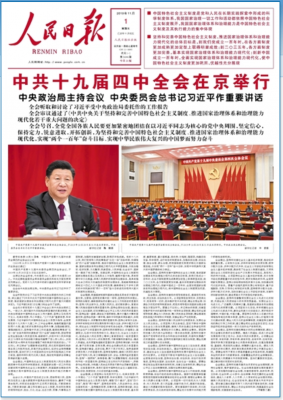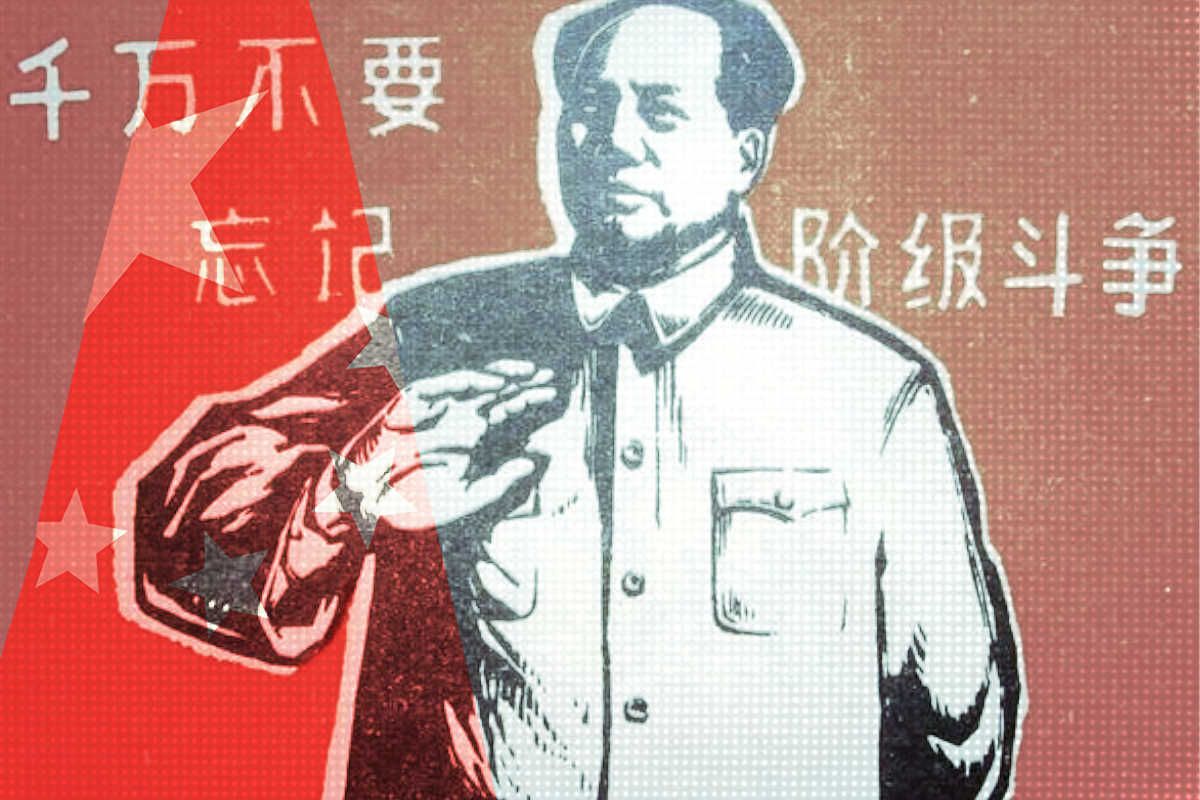Headlines and Hashtags
Reforming Control
It was a quiet day yesterday in the pages of the People’s Daily. So quiet, in fact, that the space to the right of the masthead — generally reserved for the Chinese Communist Party’s most stolid commentaries and policy announcements — featured a piece of relative trivia: the release in Brazil of the Portuguese edition of Xi Jinping’s Governance of China.
Why so quiet on the closing day of the long-awaited (because so long delayed) Fourth Plenum of the 19th Central Committee of the CCP? Precisely because a vacuum needed to be left open for the rush of heady discourse that would come with the evening release of the plenum’s official bulletin.

So what should we make of the bulletin? What new information does it convey?
Much of the discourse is boilerplate stuff, of course, as when we are told that the Central Committee “is led by raising high the banner of socialism with Chinese characteristics, adhering to Marxism-Leninism, Mao Zedong Thought, Deng Xiaoping Theory, the important thought of the ‘Three Represents’, the scientific view of development and Xi Jinping thought on socialism with Chinese characteristics for the new era.” This is nothing more than an obligatory nod to the stratigraphy of core leadership theories and programs through the history of the CCP, always a ponderous list. It is conceivable that with time these might be consolidated and subsumed under so-called “Xi Jinping Thought,” the final item on the list, but that has clearly not yet happened.
In this opening section of the bulletin, we should also note the clear sense of urgency about how China “faces a complex situation with risks and challenges domestically and overseas clearly on the increase.”
But the crux of the bulletin is the question of governance, which comes across clearly today in the section under the main headline, which notes the introduction of a resolution called (bear with me) “Resolution from the Central Committee of the CCP on Important Questions on Adhering to and Improving the System of Socialism with Chinese Characteristics, Promoting Modernization of the National Governance System and Governing Capacity” (中共中央关于坚持和完善中国特色社会主义制度、推进国家治理体系和治理能力现代化若干重大问题的决定).
That’s right, the Fourth Plenum is about reform. But now, this is not about political reform as liberalization. This is about political reform as the continued and renewed consolidation of Party control of all aspects of Chinese society around the central authority of Xi Jinping.
Notice how the bulletin talks about the “Party leadership system,” or dang de lingdao zhidu (党的领导制度). This phrase was used by Deng Xiaoping in his August 18 speech in 1980 (八一八讲话), in which he referred to “the leadership system of the Party and the country” (党和国家的领导制度). The speech was a review of the Party’s governing history since 1949, and he especially addressed the lessons of the Cultural Revolution.
It was from this speech and its discussion of “the leadership system of the Party and the country” that the debate emerged in the 1980s about so-called “political system reform,” or zhengzhi tizhi gaige (政治体制改革). The chief direction of reform was to deal with the painful excesses of the Cultural Revolution and the early decades of CCP rule, and Deng harshly criticized the problem of “over-concentration of power” (权力过分集中).
Those interested in learning more about Deng’s speech and about “political system reform” in the early reform era context should read historian Wu Wei’s 2014 article at the Chinese website of the New York Times.
In the most direct sense, we can say that the Fourth Plenum is reform in the opposite direction, as a re-consolidation of the power of the CCP, and about finding new means to consolidate and exercise CCP power at all levels of Chinese society — given the challenges of the “new era.” While Deng Xiaoping’s objective was the deal with “over-concentration of power,” Xi’s objective is to address the problem of insufficient concentration of power.
In the section of the bulletin that discusses “improvement of the Party’s leadership system,” we have the familiar phrase laying claim to CCP dominance of everything: “We must adhere to the [principle that] the CCP leads everything — the Party, the government, the military, society, education, east, west, north and south.”
We could talk until the cows come home about the specific discourse in other sections of the bulletin — dealing with “one country, two systems,” dealing with foreign policy (and the “common destiny for mankind”). But the crux of the bulletin is absolutely clear, and this conditions the attitude to all other aspects dealt with at the Fourth Plenum.





















